Guatemala landslide: Death toll rises to 73
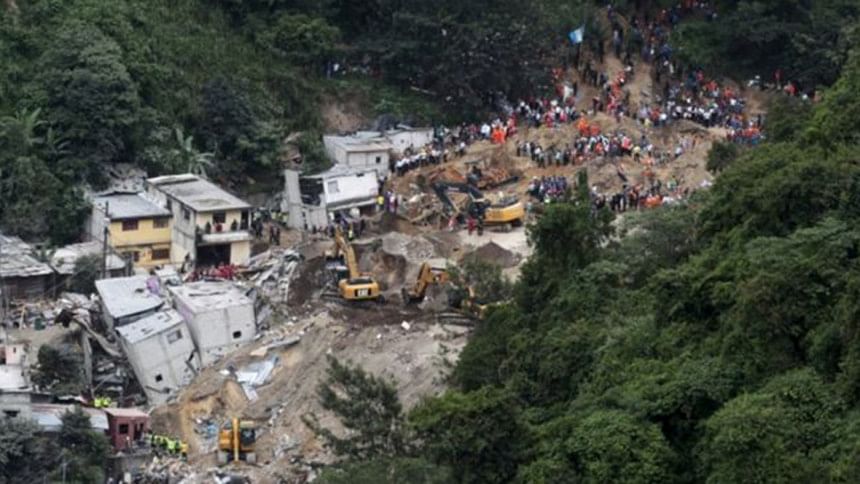
The Guatemalan authorities say the number of people killed when a hillside collapsed on houses in the village of El Cambray, 15km (nine miles) outside the capital, has risen to 73.
They said another 350 people were still believed to be missing under tonnes of rock and earth that slipped onto homes on Thursday night.
Rescue teams were using dogs to try to reach people trapped under the rubble.
A morgue has been set up with some burials already taking place.
A government spokesperson, Julia Barrera, said they had managed to rescue 26 people so far.
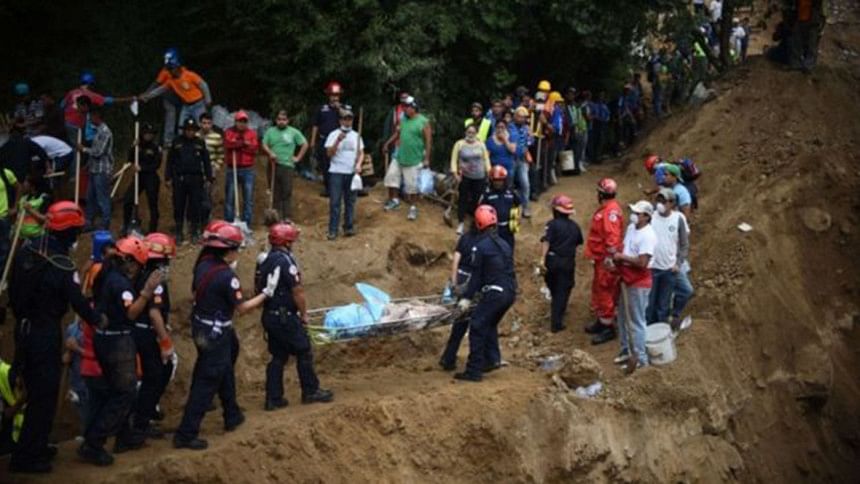
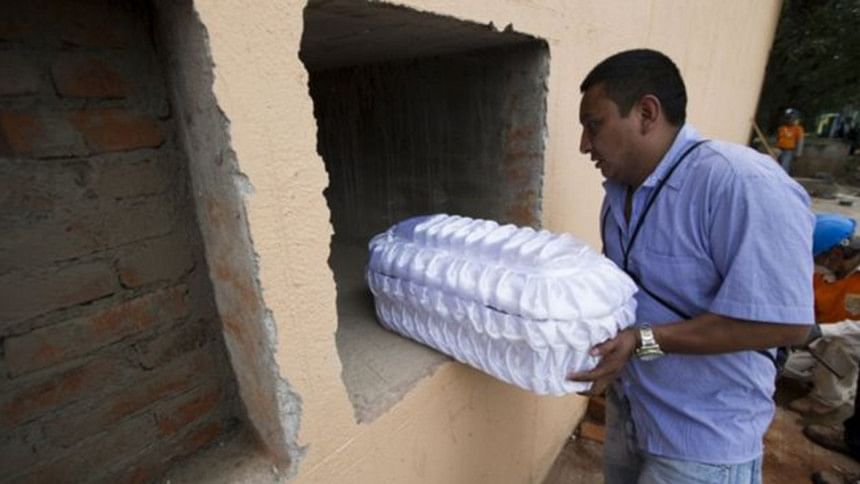
More than a thousand rescue workers are working at the disaster site deploying earth movers and sniffer dogs.
A spokesman for the Guatemalan emergency services, CONRED, Julio Sanchez said the United States and Mexico had offered help but were asked to remain on standby.
He said Guatemala was following international protocols that advocated search and rescue procedures for 72 hours after a disaster of this kind.
Rescue workers could be seen calling out to those trapped under the soil and listening intently for replies or movement.
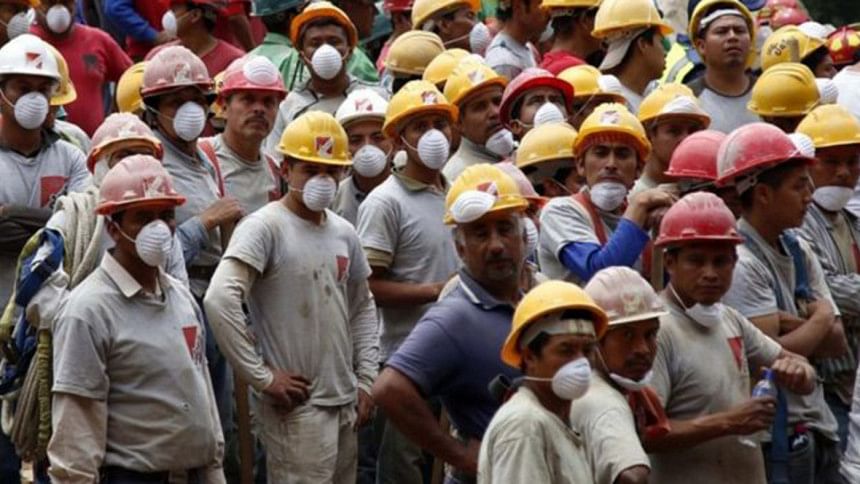
One rescue worker told Reuters that after the initial 72 hours there was less probability of finding survivors alive and it was more difficult to find people alive after mudslides than after an earthquake.
Rescue efforts are being hampered by the instability of the terrain and the prospect of more heavy rain.
The local municipal authorities had previously warned against the building of houses in Cambray because of the risks from high rainfall and unstable hillsides.
But the village has continued to grow over the last few years with houses constructed of concrete blocks, wood and zinc sheeting.
Mountainous Guatemala is one of the most vulnerable countries to natural disasters in the world because of its heavy rainfall and hurricanes and intense poverty which forces people to live in unsuitable areas.
The latest disaster may be the worst in a decade. In 2005 hundreds of people were buried after torrential rain in Panabaj in the municipality of Santiago Atitlan.
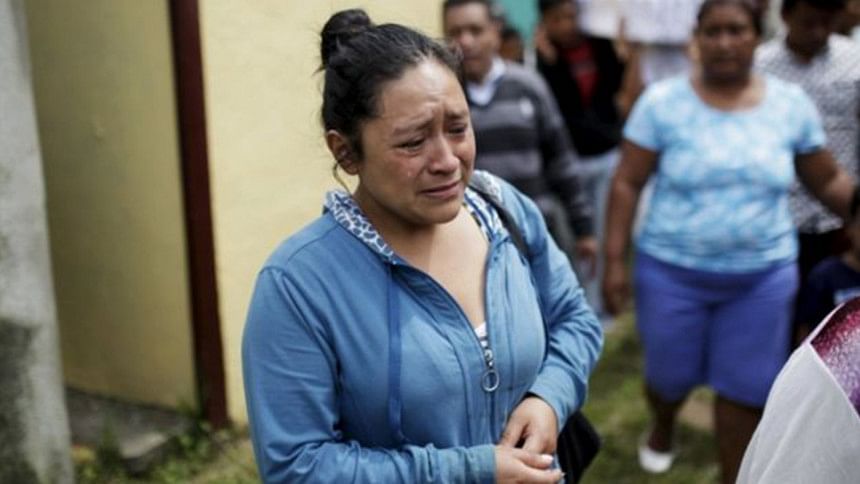
The authorities were forced to declare the area a cemetery because of the impossibility of recovering the bodies.

 For all latest news, follow The Daily Star's Google News channel.
For all latest news, follow The Daily Star's Google News channel. 



Comments